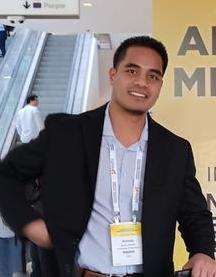Graduate Student Association (GSA)
The primary goal of the Graduate Student Association for the College of Education, Criminal Justice, and Human Services is to provide information, build community, and provide a voice to the entire graduate students enrolled within the college of CECH. We are allotted an annual fixed budget from the Graduate Student Governing Association (GSGA) to sponsor conferences, host guest speakers, and hold social functions for the graduate students within CECH.
The primary goals of the CECH-GSA are to:
- Build a community of graduate students in the college
- Give all graduate students a voice in the college
- Provide information to graduate students
GSA Affiliations
GSGA (Graduate Student Governance Association)
GSGA is an organization run by graduate students for graduate students that serves as the executive board for the Graduate Student Assembly, which is comprised of representatives from each Graduate Student Association.
CSI (Center for Student Involvement)
UC students who want to be involved while attending the University of Cincinnati. Their mission is guiding purposeful student engagement, fostering a sense of community, providing opportunities for student growth and leadership development. They intend to build the leadership skills of UC students to make them better citizens.
CECH GSA Executive Board
President - Lindsey Insco, School of Criminal Justice
Vice-President - Esnart Mfune, School of Education
Treasurer - Sinui Park, School of Criminal Justice
Secretary - Amota Ataneka, School of Education
Distance Learning Representative - Alaa Tukruna, School of Human Services
Special Committee Chair - Catherine Moeller, School of Criminal Justice and Tiffany Berman, School of Education

Lindsey Marie Insco
Graduate Assistant, CECH Criminal Justice

Esnart Mfune
Graduate Assistant, CECH Graduate Programs-Education

Amota Ataneka
Graduate Assistant, CECH Graduate Programs-Education
Modeling latent factors is challenging because we only see them indirectly through survey items, test scores, behaviors, or indicators which introduces measurement error. This problem is not small—it is a critical limitation of nearly every algorithm in use today. For more than 100 years, researchers have relied on regression, structural equation models (SEMs), and more recently, structural-after-measurement (SAM) methods. Yet none of these approaches, on their own, can fully address both measurement error and the need for correct model specification. They either assume the measurement model is perfectly specified or treat the observed indicators as if they were error-free, which is rarely true in practice.
Amota’s work is designed to close this gap. By integrating machine learning with latent variable modeling, his research aims to develop the first generation of algorithms that directly tackle both measurement error and model specification challenges. This innovation is not just technical—it is essential for improving how we estimate causal effects in education, medicine, biology, and other fields where hidden constructs drive real-world outcomes.
Amota also contributes to the development of methods and tools for complex randomized study designs (a gold standard design for studying cause-and-effects) such as cluster randomized trials (CRTs), multisite design, partially nested CRTs, and Multiple-Group Individually-Randomized Group Trials. Amota has presented his work at the American Educational Research Association (AERA), American Evaluation Association, and the Society for Research on Educational Effectiveness (SREE).

Catherine Marliese Moeller

Tiffany Nicole Berman
Instructor - Adj, CECH Elementary Education
610 Teachers College
CECH GSA Contact Information
If you have any questions or inquiries, please feel free to contact the GSA by email or our advisor Stacy Jenkins.
Follow us on social media:
Find us on GetInvolvedUC for more information or to join the CECH GSA.